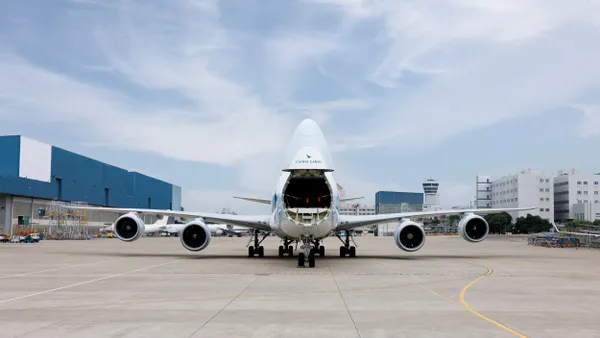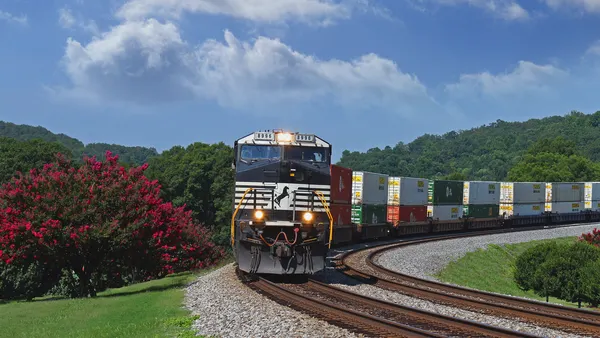Dive Brief:
- Texas is increasing weight limits for trucks hauling intermodal containers in 2018, permitting loads of up to 100,000 pounds to travel to and from 30 miles from the the Gulf of Mexico, Overdrive reported last week.
- Permits costing $6,000 a year will be required, with 50% of the fee directed to the state’s highway fund, while the other half will be distributed to counties, cities and the Texas Department of Transportation.
- Trucks may only operate on state and local highways. The permits do allow for interstate or load-restricted roads and bridges.
Dive Insight:
When the Houston Chronicle published a story about outdated policies on truck weight limits hampering the state's well-known petrochemical industry, it explained how partial loads were wasting time and fuel, not to mention stressing the area's already suffering roads.
The new Texas bill addresses this issue by designated state and local highways as heavy freight corridors, while earmarking 50% of the proceeds from the permit to upgrade the roads. This appeases proponents who had argued for special freight corridors to be built, while also allowing truckers to carry more full loads.
While the bill no doubt helps address the longstanding issue of aged truck weight policies, its greater implication regards infrastructure repair. The Texas permit plan is yet another example of the burden of repair being borne by states, as opposed to the federal government.
Texas is now the sixth state to independently fund infrastructure upgrades , preceded by California, South Carolina, Tennessee and Indiana. While the Trump administration, now in its sixth month, remains mired in staffing and international policy controversy, little progress has seemingly been made on the country's infrastructure. If no plan is announced within coming months, it's a possibility that more states will follow suit and develop their own taxation or other plans to begin desperately needed repairs.













